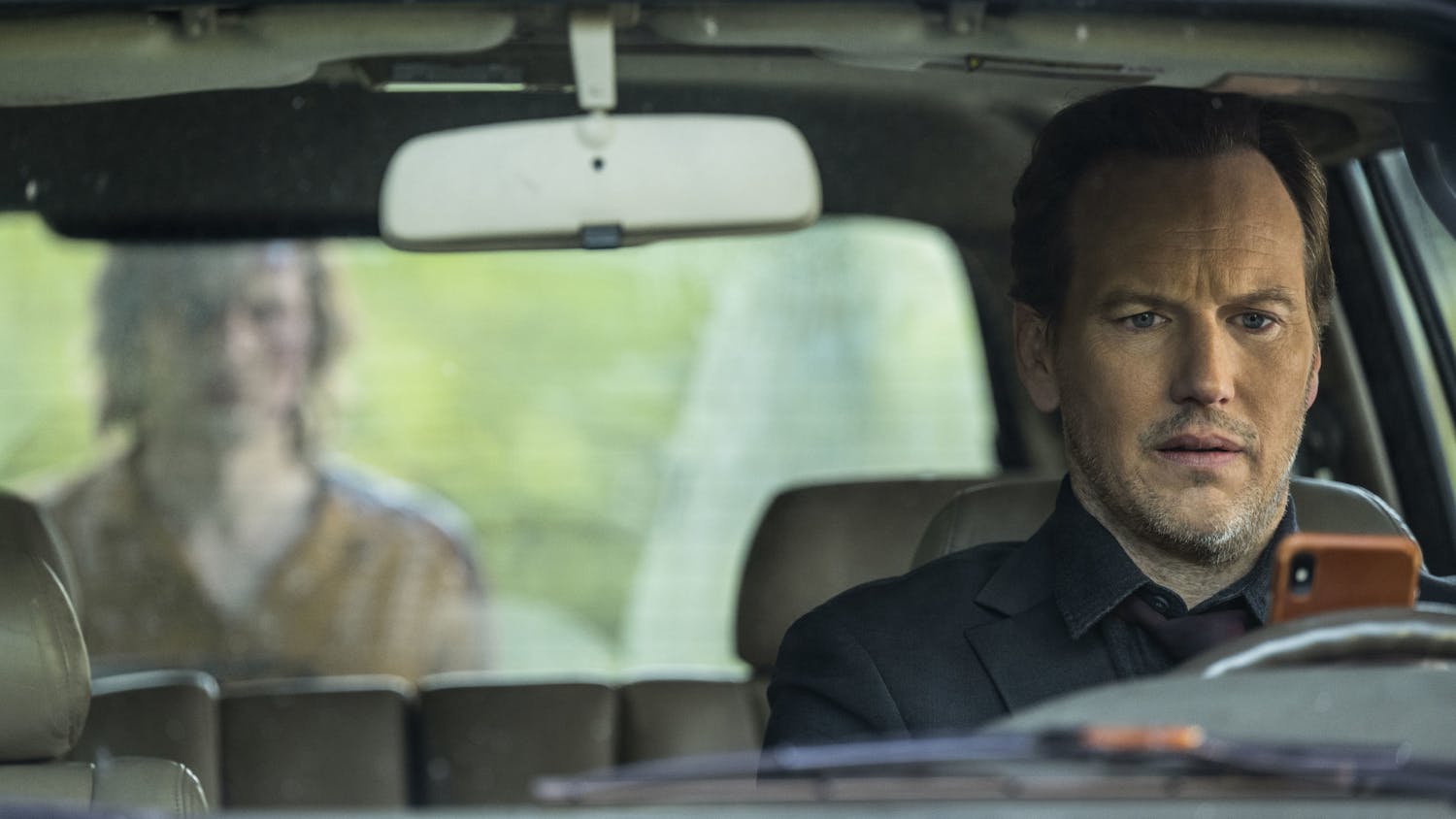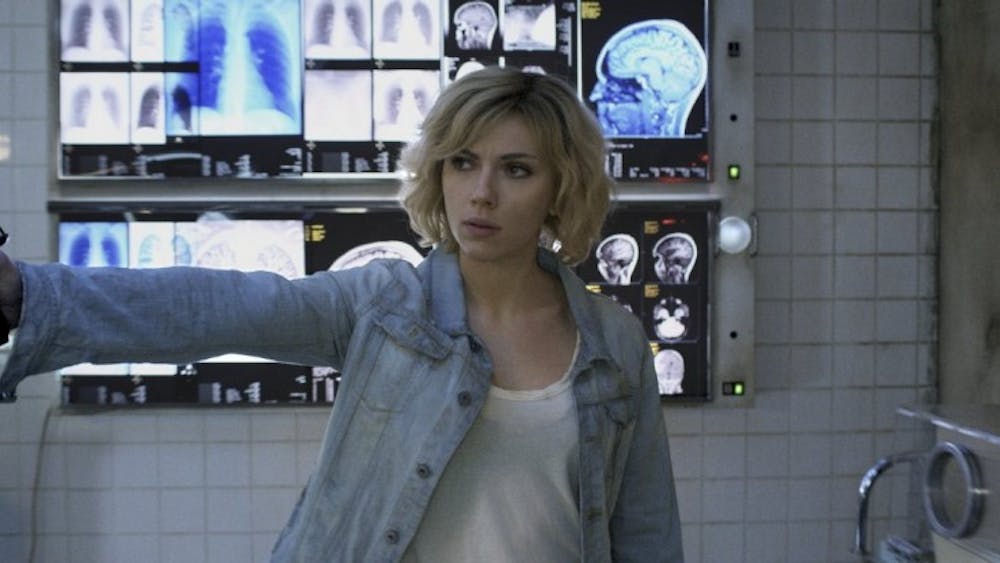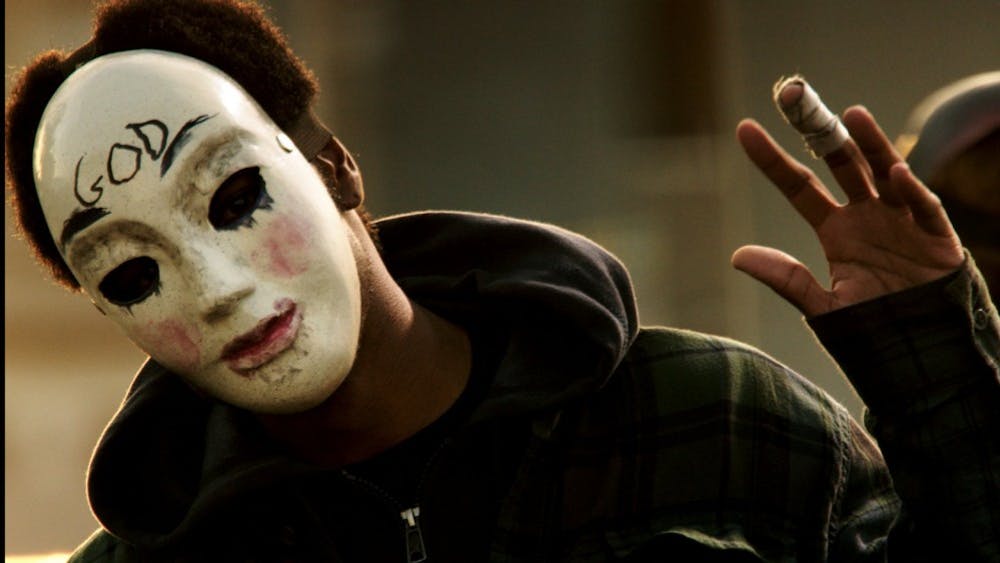George A. Romero’s “Diary of the Dead,” his fifth and latest zombie tale, opens from the viewpoint of a TV-news cameraman filming raw footage of a reporter at the scene of a murder-suicide. The audience already knows it’s raw footage because the reporter is checking her makeup while cops in the background make callous remarks about the murderer and victims being immigrants. But, in case you couldn’t figure it out, an ominous voice-over informs you that this is, indeed, raw TV news footage. Then the voice-over tells you that this is where the trouble started – just as the corpses rise up and start biting people.
And thus, not five minutes in, viewers have already uncovered the fundamental flaw of “Diary of the Dead.” Romero has forgotten that maxim of Creative Writing 101: Show, don’t tell.
And as he launches the plot – a group of film students, learning of the walking dead, abandon shooting their cheesy horror movie and rush home to join their loved ones, recording all the way – he will tell, and tell and tell you exactly what you’re supposed to think, whether via voice-over, or from characters with dialogue as portentous as Old Testament prophets.
As with all Romero’s “Dead” films (except 1968’s “Night of the Living Dead”), “Diary” has a message. This time, it’s about the information overload from amateur online media and the distance one feels when viewing the world through a camera. But while he has never been subtle about such messages, Romero’s constant, clumsy hectoring crushes the film’s fun. In 1978’s “Dawn of the Dead,” Romero brilliantly and hilariously satirized consumerism by showing zombies wandering around a mall with Muzak playing in the background. No voice-over needed.
The tragedy is that “Diary” shows unrealized potential. The visual restrictions of the first-person viewpoint create a tension ideal for suspense, and many moments (running over zombies with a Winnebago, melting a zombie with acid, a deaf-mute Amish man who’s a zombie-destroying badass) should cause an audience to cheer. “Diary” could easily deliver humor and horror while providing a trenchant social critique – if Romero would just save the lecture for the DVD commentary.
The groaning dead

Get stories like this in your inbox
Subscribe





